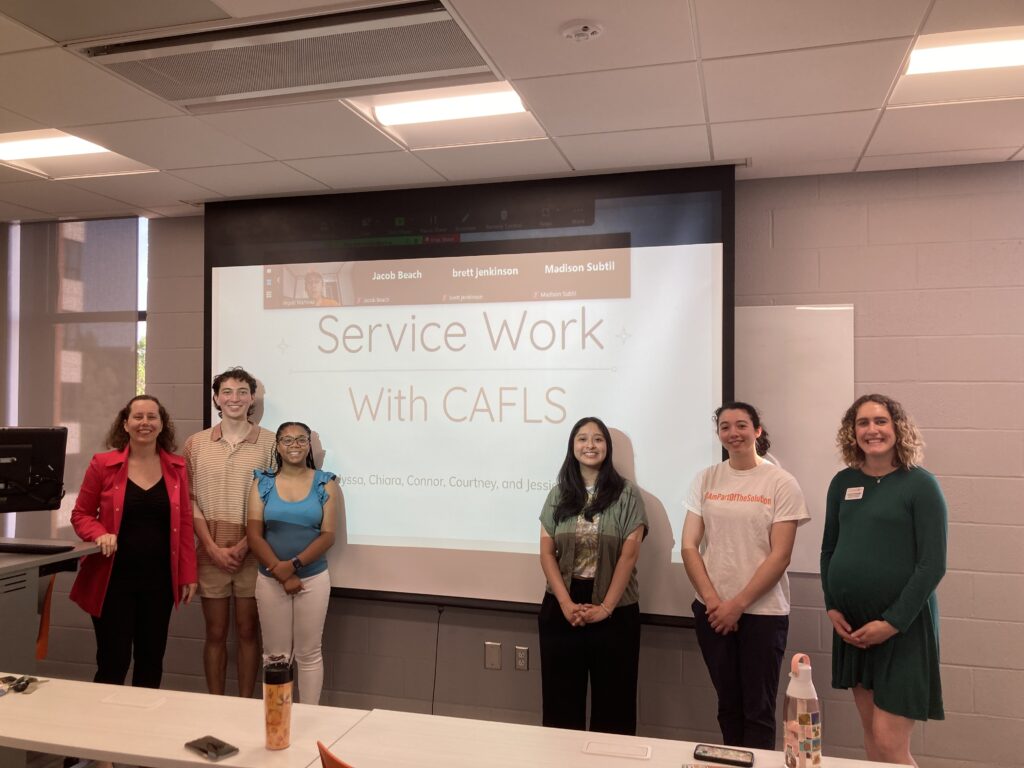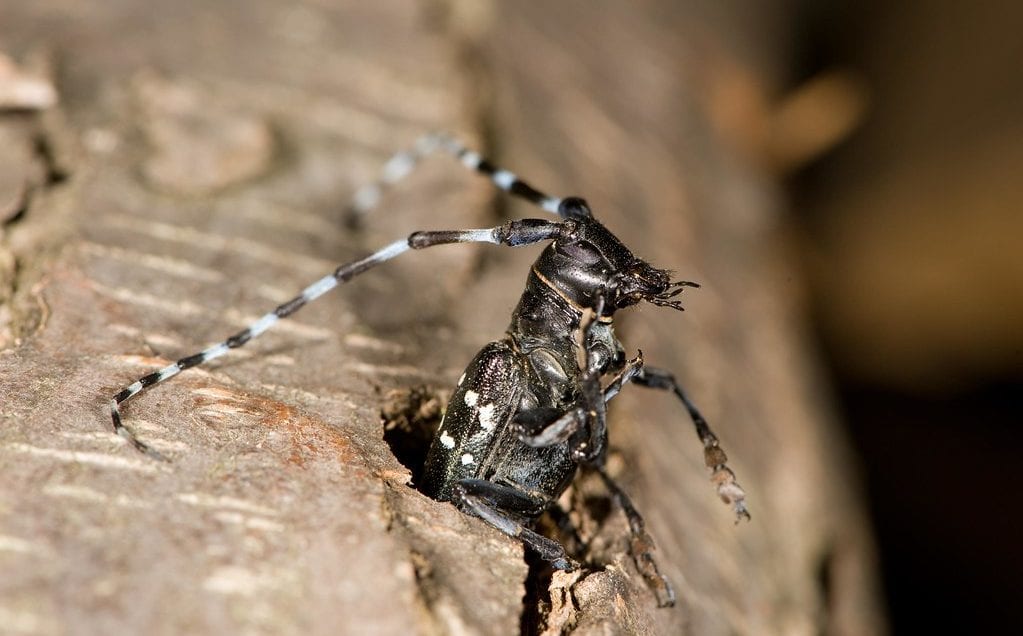Translation work provided by Clemson students is helping Spanish speakers in the Lowcountry recognize and contain an invasive species that could wreak havoc in the Palmetto State.
Nearly four years ago, Clemson’s Department of Plant Industry (DPI) announced that the Asian longhorned beetle (ALB) had been discovered in the Hollywood area of Charleston County. The beetle is one of several invasive species that Clemson is fighting, including the yellow-legged hornet, cogongrass and spotted lanternfly.
ALB infestations cause severe economic losses for nursery and forestry industries in the Northeast and Midwest. Their damage causes falling trees and branches, creating a safety hazard. The ALB weakens tree structure as larvae chew large tunnels in the wood. Trees eventually die from the damage.
The discovery triggered a quarantine against transporting wood and wood products from the area and commenced a multiyear fight against the devastating beetle that includes trapping and surveying efforts. As part of the eradication effort, trees infested with ALB are required to be destroyed. Much of the landscape, nursery and tree removal workers are Spanish-speaking.
After noticing translation work done by students in the Department of Languages as part of a service-learning assignment for Clemson Rural Health’s Veggie Rx program in 2023, DPI invasive species outreach coordinator Allison Bower contacted Assistant Professor of Spanish Magdaléna Matušková for help.
Filling a gap
Matušková had taught service-learning Spanish interpreting and translation courses for several years at the University of Georgia before coming to Clemson in 2022, where she designed two classes with the goal of students learning employable skills while improving their knowledge of the language and engaging in meaningful interactions with local communities.
“I’m a big advocate for service-learning courses because they teach students materials in the classroom and soft skills, like effective communication, time management and organization,” Matušková said. “Students are getting out of their comfort zone in assignments designed in collaboration with community partners like DPI. They are lower stakes compared to the job market, but since students are working with community supervisors, they do not perceive the assignments in the same way as homework in class.”

In the translation workshop course (SPAN 4420), her students created an English brochure and translated it into Spanish to share with the Spanish-speaking public. Matušková said students work in groups independently under the supervision of the community partner. They must manage their project and resolve challenges that arise as a team. She acts as a consultant to support them as needed.
Jessica San Agustin, a psychology major with a minor in Spanish studies and youth development, was one of five students in the group that worked with DPI. Students translated other materials into Spanish, including translations for the nursery industry and an educational compliance PowerPoint.
San Agustin said the class helped her overcome a disdain for working on group projects because her team collaborated and communicated throughout the entire process.
“My time working on this project gave me insight into how important translation is,” San Agustin said. “I think that translation work is vital to our modern world. I’m so glad I got to be a part of this.”
‘Incredibly meticulous’
The translations are more than the agency communicating to the broadest audience possible, Bower said.
“The translations also make regulation more equitable,” she said. “We use them at our educational and outreach events, which allow us to include everyone in the regulatory process.”
Miguel Martinez, an ALB survey specialist with DPI, said the educational materials help precisely explain why it’s critical to report sightings.
“There are times when our English-speaking survey specialists must survey the property of a home where the residents are Spanish-speaking, and it can be difficult to explain why we were there,” he said. “We didn’t have a Spanish word for Asian longhorned beetles and the other insects. There is no colloquial name for these insects in Spanish, and we knew the scientific names would confuse the general public. So, we directly translated the English name into the Spanish name.”
He added that Matušková’s students “were incredibly professional.”
“They set goals that they wanted to meet when they met with us and asked good questions. Everything was focused on the project,” Martinez said. “They were incredibly meticulous. I was very impressed with their work.”
Matušková said she will offer the translation workshop again in Spring 2025 and is looking forward to collaborating with DPI, Veggie Rx and other new community partners on their translation projects.
Get in touch and we will connect you with the author or another expert.
Or email us at news@clemson.edu

